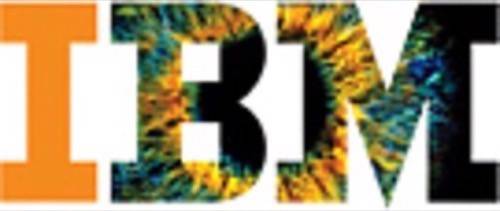This post is sponsored by IBM’s A Smarter Planet blog.

Today at the Web 2.0 Summit, Brady Forrest of O’Reilly Media ran a panel called Humans As Sensors. With him were four organizations doing innovative applications using sensors: Markus Tripp (Mobilizy), Deborah Estrin (Computer Science Department, UCLA), Sharon Biggar (Path Intelligence), Di-Ann Eisnor (Waze).
Each of the speakers started by explaining what they do.
Waze is a real-time crowd sourcing and live mapping application. It works on iPhone, Windows Mobile, Symbian and Android. Di-Ann Eisnor explained that their service does “transactional cartography.” It was initially launched in Israel, then launched in the U.S. just a few months ago.
Eisnor said that Waze aimes to take sensor data from “entertainment to action.” It started out being used to map objects, then people, now processes.
Path Intelligence is bringing online innovation to the real world, according to co-founder and the Chief Operating Officer Sharon Biggar. They are targeting the retail market – specifically shops in malls. She said that the online world is good at collecting data on user experience, but the local mall doesn’t have that data.
What Path Intelligence is doing is analogous to Google Analytics, said Biggar. It works by collecting sensor datas and anonymous pings from cellphones – it doesn’t require downloads.
Biggar said that what they are measuring is real-time behavior, “right now.” One of their current aims is to help the offline retail industry cope with recession. At mall sites they respond directly to the way shoppers are behaving. They do this by installing sensors and accurately locating mobile phones indoors. They use that data to help businesses improve in the real world and in real time.
Mobilizy makes the AR browser Wikitude, which we have covered extensively here on ReadWriteWeb. It works on mobile phones that have GPS and a compass. As we’ve explained before, Wikitude is overlaid information on the real world.
What’s next for the product? Mobilizy manager business development Markus Tripp said that they plan to open it for the public, so people can create content for AR. It will be in the same format as Google Earth.
Deborah Estrin from the Computer Science Department at UCLA was on next. She explained that they are doing a lot of research into “participatory sensing.” They are taking it from aggregators to personal apps. The use cases include specific civic and citizen data campaigns. She suggested that what they do is “twitter with a purpose,” although she admitted that this was a cynical thing to say.
Example apps include whatsinvasive.com – enabling users to provide data on what plants are invasive (weeds etc) – and Biketastic.
Discussion
The panel then had a discussion on where sensor and mobile-generated data is headed on the Web.
Brady asked the panel about how users can trust the data, whether it be implict or explicit.
Estrin from UCLA said that giving people visibility back into the data is key. Let people have legible feedback on the data. She also remarked that they always have “eyes on the process” – in other words, humans in the loop. So what they do is not entirely automated.
Waze has learned from web 2.0 that you need to apply different weighting for different people.
Brady asked next: what type of critical mass of people is needed for these kinds of apps?
Di-Ann Eisnor from Waze said that it really depends on the app and its goals. She noted that for them Israel was an incubator / test bed. So they shot for half a percent of the market.
Sharon Biggar from Path Intelligence agreed that it depends on the app and what you’re trying to achieve. For them their focus is retail, so their comparison point (in terms of data) is what users had before they came along.
Deborah Estrin from UCLA remarked that as you get more data, you get more value.
Brady asked the magical Web 2.0 question: how do you all plan on making money?
Sharon Biggar from Path Intelligence explained that their business model is built into what they do: retail. She said that retailers will pay for the data they provide. However she noted that these companies “need to get the sensors out there, somehow” – which is a cost to those businesses.
Di-Ann Eisnor from Waze said that the “navigable data market” is worth $4B and is dominated by the big map data companies like Navteq. Waze sells their data at low cost, but she noted that Google is trying to disrupt the market. She admitted that this is shaking things up for Waze, but she thinks that location based services are coming into their own (which they are indeed, according to Morgan Stanley).
Markus Tripp from Mobilizy said that they are a very new business, but he said they are generating revenue. He said that the main goal with Wikitude is to get reach and as much content as possible into its system.
Brady asked as a final question: is Twitter the ultimate sensor?
Sharon Biggar from Path Intelligence said that Twitter data is “another indicator of interest” – another piece of data to add to the equation.










